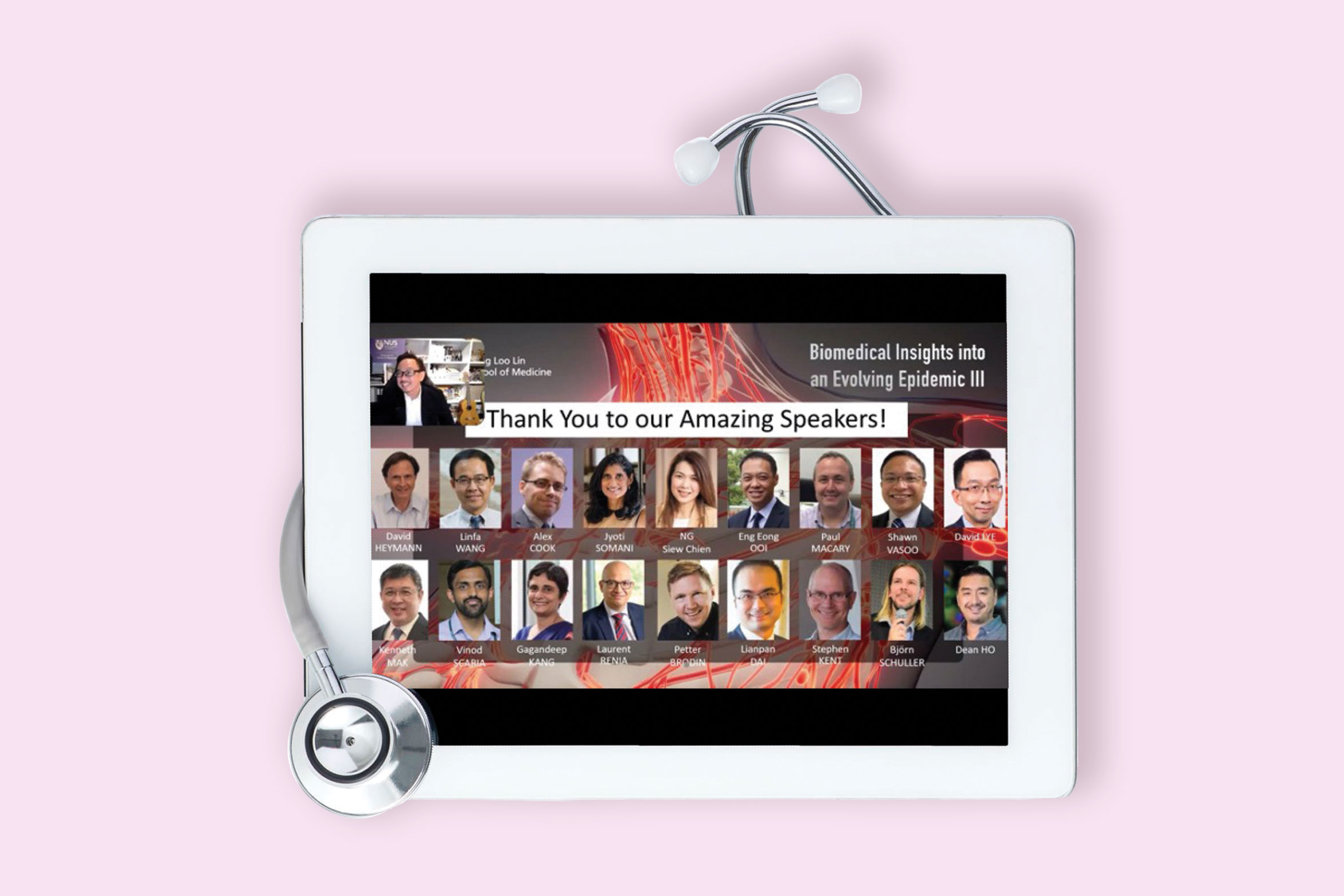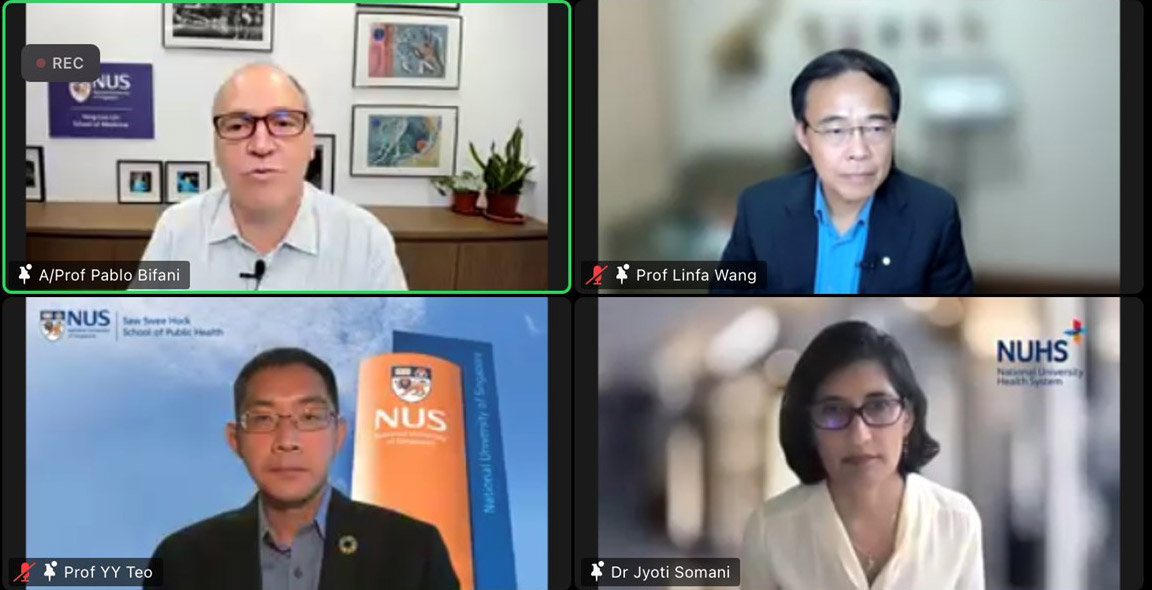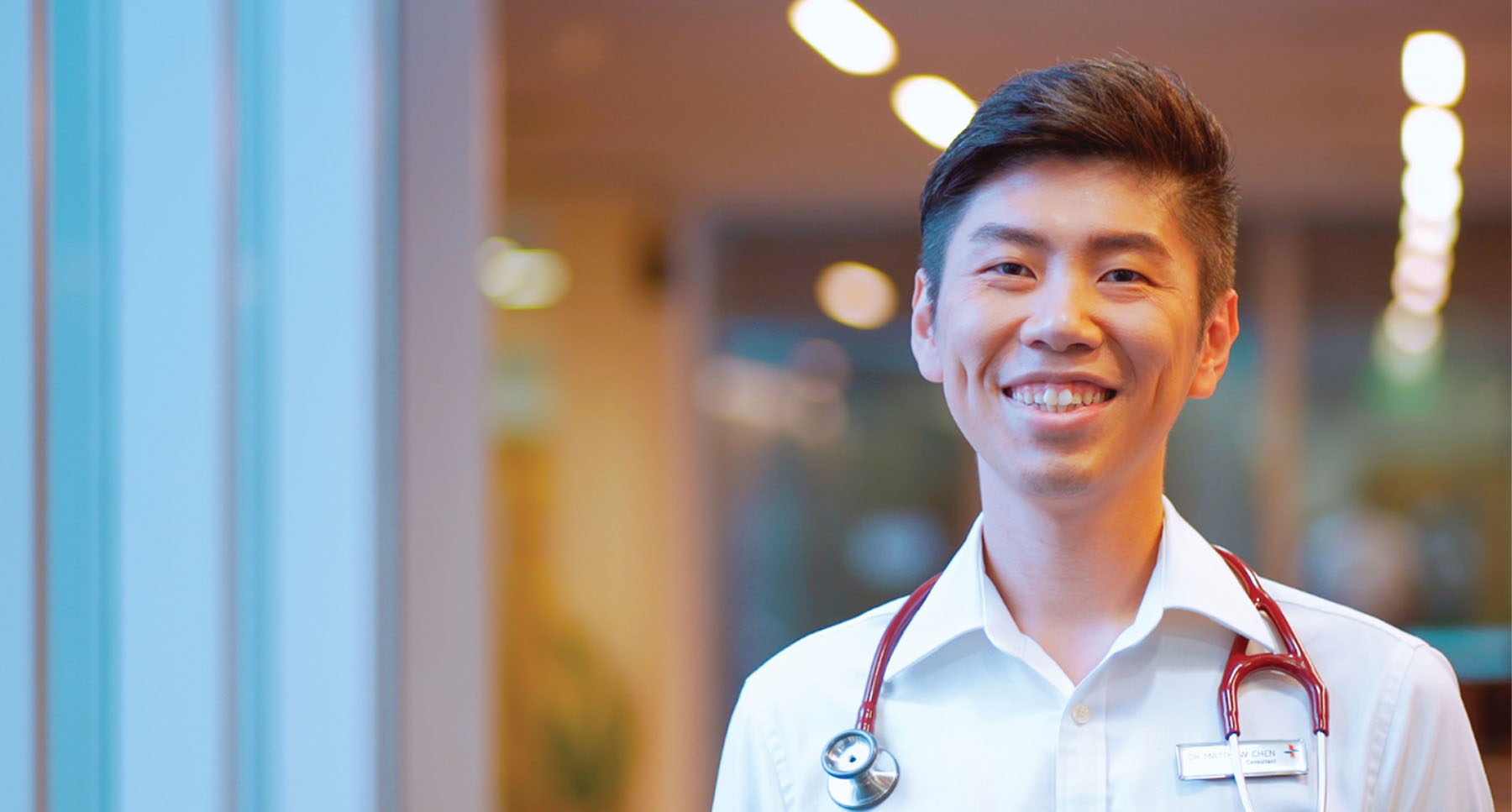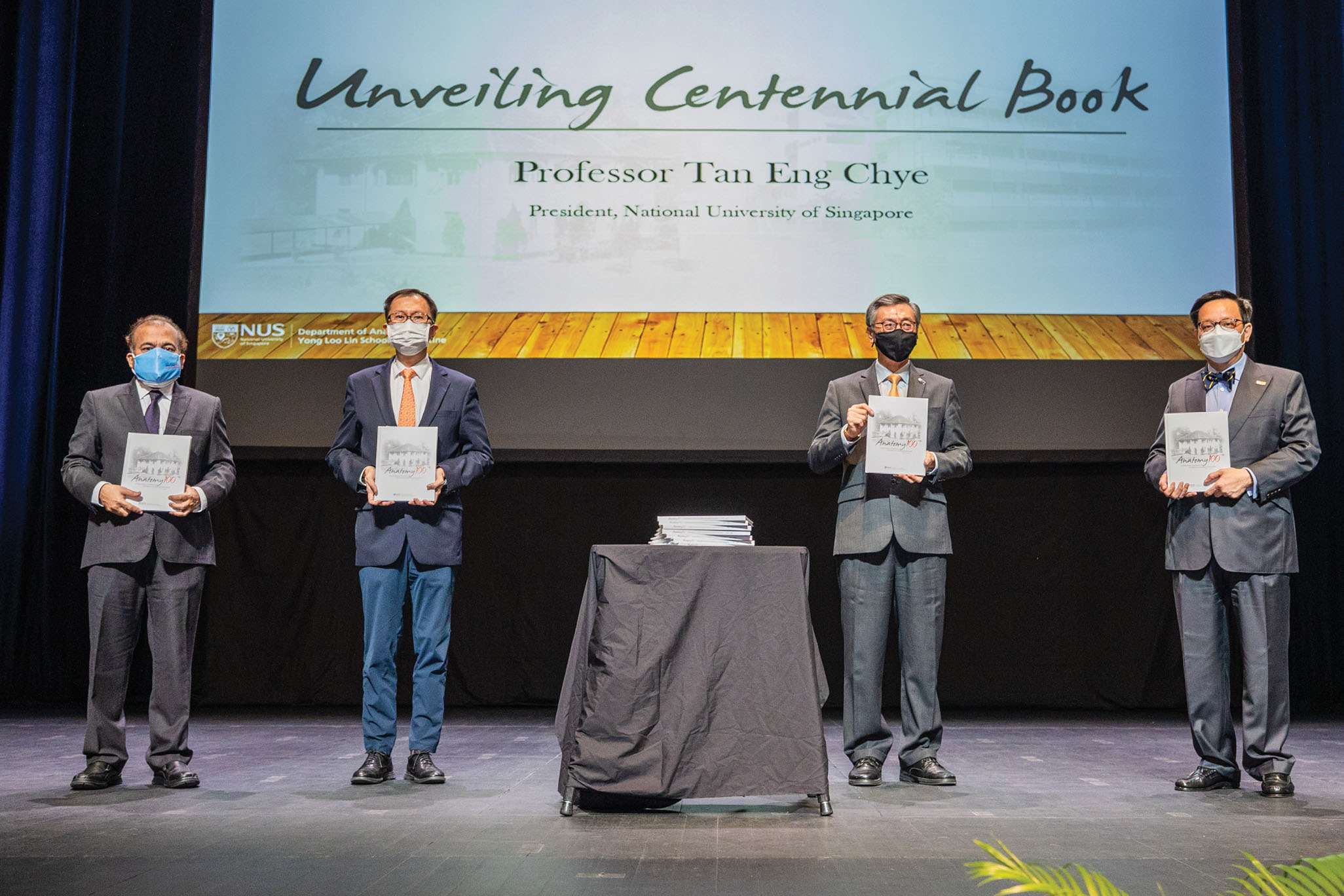
Issue 42 / May 2022
The Banyan Tree
COVID-19: Biomedical Insights into an Evolving Epidemic (BIEE3) – Translating Knowledge,
Saving Lives

Lifesaving. This word perfectly sums up the third edition of the educational series on COVID-19 presented by NUS Medicine faculty and leading biomedical and healthcare experts from around the globe.
This third instalment built on the well-received first and second series. The first episode aired in July 2020 as the pandemic unfolded. The second edition in the series coincided with the pandemic’s one-year mark in January 2021 and featured eminent scientists who provided insights on the virus biology and interventions to combat the pandemic.
Organised by the Department of Microbiology and Immunology and the School’s executive education unit, MEDEx, this third series ran from 12 January to 21 February 2022 as 10 live webinars, simulcasted in English, Chinese and Bahasa. It saw over 7,500 participants from across the world gaining updated insights on the biology and biomedical research into COVID-19. Participants also learnt about the epidemiology of the outbreak, vaccine development and efficacy, and innovations in diagnosis and treatment. An international panel of experts shared their latest evidence-based insights on detecting, treating, and preventing COVID-19 even as the disease continues to evolve.
“A lifesaving webinar. I shared the insightful information about vaccines that I learnt from the webinar with my friends. They got vaccinated after a long time of hesitancy.”
Mr Legaspi Ravas, Jr., Philippine Science High School, Eastern Visayas Campus
Crowning the third series was the final webinar that saw a panel discussion among leading COVID-19 experts on the theme ‘The New Normal: A Moving Target?’, and which highlighted the sobering fact that we continue to live in the shadow of COVID-19. Hailing from different fields, including public health, biomedical, clinical, diagnostic, vaccine and therapeutics, the panelists shared perspectives on the current global situation and used Singapore’s experience as a framework for a thought-provoking discussion.

Moderated by A/Prof Kevin Tan and A/Prof Pablo Bifani, leading COVID-19 experts at the final webinar panel discussion included Prof Wang Linfa, Professor, Programme in Emerging Infectious Diseases, Duke-NUS Medical School, Prof Teo Yik Ying, Dean, Saw Swee Hock School of Public Health, National University Singapore and Dr Jyoti Somani, Senior Consultant, Division of Infectious Diseases, Department of Medicine, National University Hospital.
Associate Professor Kevin Tan, Head, Department of Microbiology and Immunology, NUS Medicine sums up the impact of the third series in shaping the global transition into the new normal, “The unfolding and containment of COVID-19 has shown that the challenges involved are multifaceted and complex. These series of webinars have provided an educational platform for our healthcare and biomedical community to glean new knowledge that can lead to science-based healthcare decisions. BIEE1, 2, and 3 were possible because of synergistic collaborations between NUS Medicine teams with complementary skill sets, leading to impactful outcomes.”
“I shared the insights from the webinar to help in the advocacy of vaccinating children. Many of my friends are truly afraid, and I know vaccinating the children will help save lives.”
Ms Marilou M. Pepito, DSWD Field Office IX, Gen. Vicente Alvarez St., Zamboanga City
- https://www.zaobao.com.sg/news/singapore/story20220222-1245109.
- https://www.straitstimes.com/singapore/health/it-is-not-the-time-to-have-a-covid-19-party-even-if-omicron-infections-are-milder.
- https://www.straitstimes.com/singapore/health/askst-can-vaccination-reduce-symptoms-of-long-covid.




